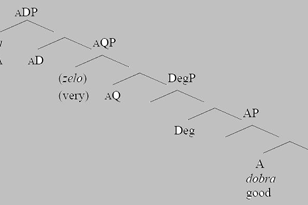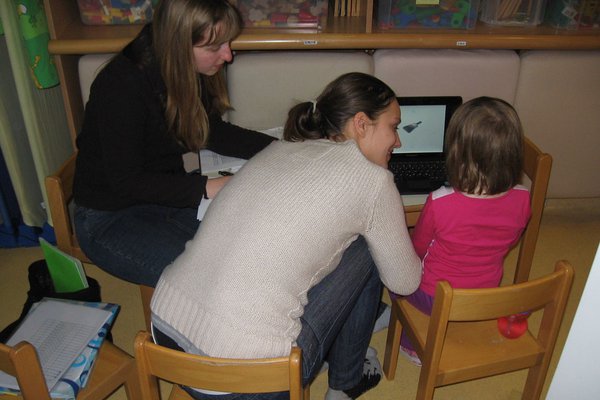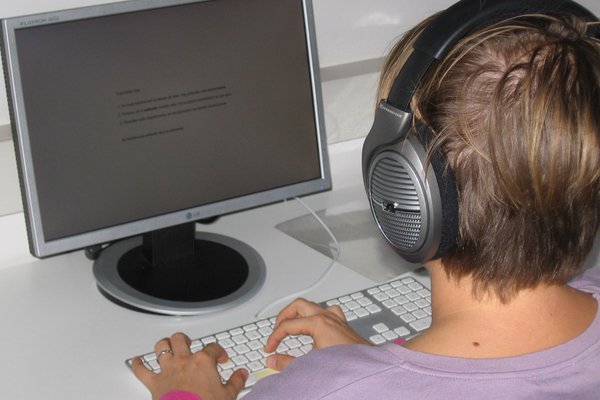Language and Cognitive Science
Our language and cognitive science group works mostly in formal generative linguistics (especially syntax, semantics and morphology) and in other cognitive-science disciplines related to language, in particular psycholinguistics and language acquisition. Members of the group are closely connected with linguists and cognitive scientists from Slovenian and foreign research institutions (University College London, Universität Konstanz, University of California, San Diego, etc.)
In addition to Slovenian Research and Innovation Agency-funded projects and externally-funded applied projects that individual members of our group are continuously involved in, we pursue our group research agenda in the scope of the Slovenian Research Agency-funded research program Theoretical and experimental linguistics (P6-0382).
Alongside their research endeavors, our members are also engaged pedagogically as instructors of various courses in the Slovene Studies track and the Slovene Language and Language Data track of the Language and Literature in the Digital World BA program and the Linguistics track of the Humanities Studies MA program of the University of Nova Gorica’s School of Humanities, as well as in the PhD-level program Cognitive Science of Language of the University of Nova Gorica’s Graduate School.
Basic research topics of the language and cognitive science group have recently included:
- research on theoretically relevant characteristics of various languages (e.g., status of syntactic islands, syntax and semantics of the noun phrase, resultative secondary predication, left periphery, semantics of vagueness, superlatives);
- analysis of theoretically relevant features of colloquial and dialectal varieties of Slovenian (e.g., clitic doubling, case-suffix doubling, competing agreement patterns) – in contrast to traditional Slovenian linguistics, which investigates structural aspects only on standard Slovenian and settles for data collection/archiving in the context of colloquial and dialectal varieties;
- psycholinguistic testing of theoretical models (e.g., experimental testing of linguistic models of the grammar of agreement, experiments on recursion and hierarchy as the central characteristics of human language knowledge, testing the correlation between general cognitive abilities and language through an investigation of the link between children’s acquisition of mathematical number and grammatical number)
Applied work and and broader-audience activities of the language and cognitive science group has recently included:
- participation in applied projects such as Development of Slovene in a Digital Environment, in the development of web portals such as SMejSe (Slovenian as a minority language);
- studies providing government bodies (e.g., the Ministry of Culture’s Department for Slovene Language) with support in the preparation of new regulations and language-policy measures by investigating the effects of current regulations on public language use, the efficiency of the principles of determination of domestic/foreign status in vocabulary, the language policy in higher education and science);
- language consulting services (JeSv consultancy within the EU-funded project JezikLingua, the Slovenian branch of Multilingualism Matters, etc.);
- participation in linguistics/language-related consortia such as CLARIN.SI/Common Language Resources and Technology Infrastructure, Slovenia;
- organization of the public invited-lecture series Jezik & Linguistics Colloquia




